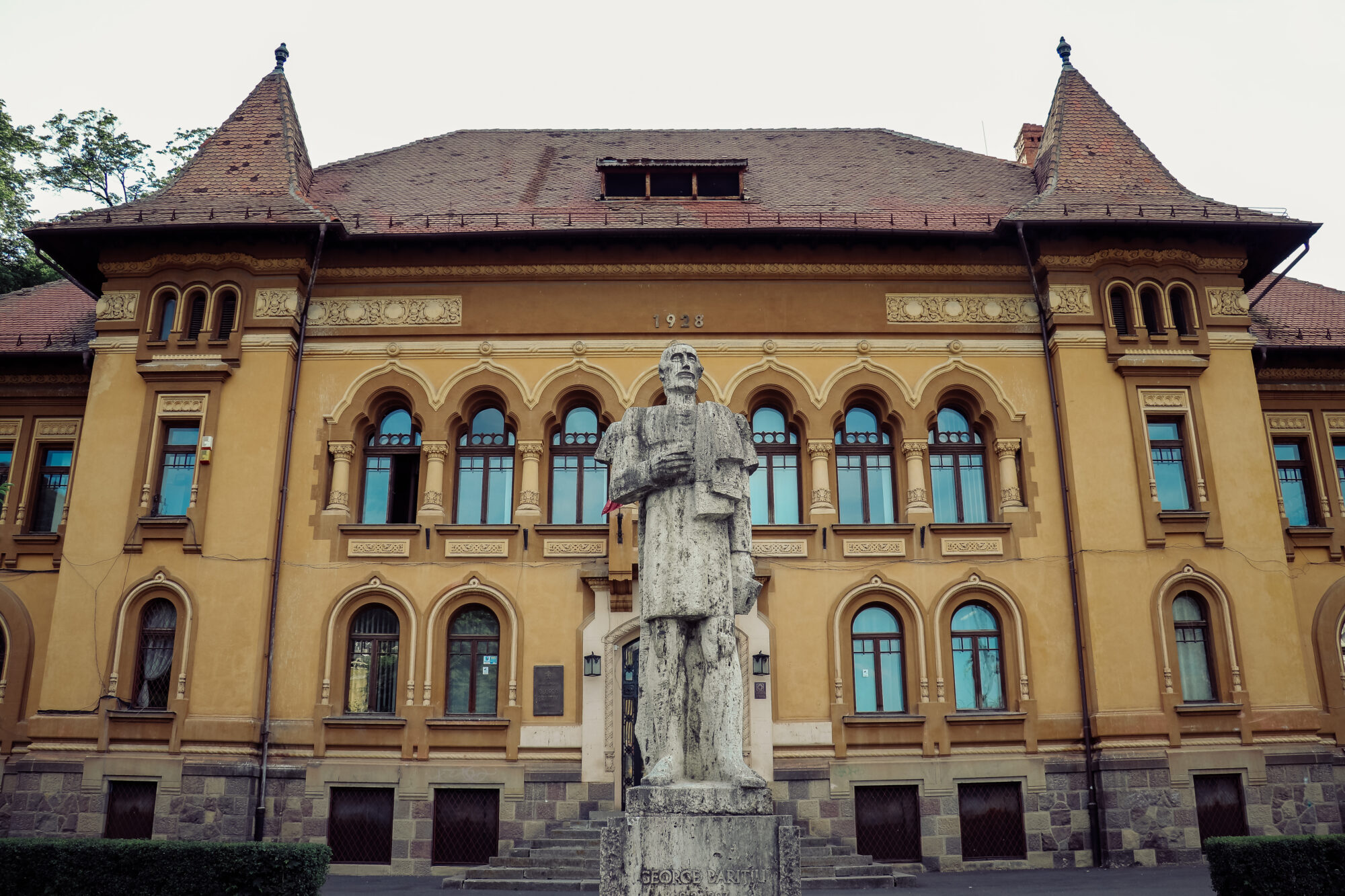“George Barițiu” County Library
35 Eroilor Blvd., Brașov County

In addition to the libraries of the churches and schools of Brașov, with inventories and catalogues dating back to 1575, 1625 and 1684, there were private libraries in the city, belonging to priests and scholars, as well as to various associations, on the basis of which the later community libraries were founded. One such organisation, called Casina, founded in 1835, had a Romanian library, the first to be organised as a public library in the present-day sense of the word. The donation of the library of Alexandru Bogdan, who died in the war in 1914, was the starting point of the Astra Library, opened on 19 January 1930 in Casa Baiulescu (today's 35 Eroilor Blvd.) and led by Ion Colan.
The Astra Library was the city's library in the inter-war period, and it bought old and new books, attracted donations and organised itself in a modern way. Following the Astra's ending in 1948, the communists took over its collections and in 1950 set up the Brașov Regional Library, which was subject to the ideology of the time. Fund S, a special fund of publications forbidden to the public, was created and the collections were purged. In 1965, the Brașov library moved to another building, the former premises of the Chamber of Commerce and Industry of Brașov, where ARLUS (Romanian Association for Links with the USSR), local newspapers and a cinema operated after 1945. In 1969 the Brașov Regional Library became Brașov County Library. At that time, branches of the library were established in different neighbourhoods of the city.
In 1992, on the 180th anniversary of George Barițiu's birth, the library adopted his name as its spiritual patron. After the fall of communism, the library was modernised and the lending section was one of the first in Romania to be fully automated in 1998.
George Barițiu (1812-1893) was one of the versatile personalities of Transylvanian Romanians - pedagogue, journalist, politician and historian. Established in 1836 in Brașov, George Barițiu had a fundamental influence on the Romanians of Brașov. He founded “Gazeta de Transilvania” (The Transylvanian Gazette) in 1838, the first Romanian political newspaper in Transylvania, and its supplement, “Foaie pentru minte, inimă și literatură” (Leaflet for mind, heart and literature). He took part in the 1848 Revolution; he was commercial director of the Zărnești Paper Mill (1852-1872). He founded the Astra in 1861, together with other scholars, and was its first secretary (1861-1887), then president (1888-1893). He became president of the Romanian Academy in 1893.
His main historical work is “Selected Parts from the History of Transylvania. Two hundred years ago”, published in Sibiu, in three volumes, between 1888-1891.